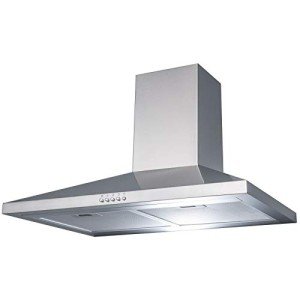What's The Job Market For Hood Extractor Professionals Like?
페이지 정보
작성자 Delphia Andre 작성일 25-11-19 23:38 조회 3 댓글 0본문
Understanding Hood Extractors: An In-Depth Exploration
Introduction
Hood extractors, frequently referred to merely as exhaust hoods, are important parts of property and industrial kitchens. They serve the important function of maintaining a safe and comfy environment by getting rid of smoke, steam, heat, and air-borne grease particles generated throughout cooking. This post aims to offer a useful introduction of hood extractors, including types, benefits, elements, setup factors to consider, and typical FAQs.
What are Hood Extractors?
A hood extractor is a ventilation gadget set up over cooking equipment to record and exhaust cooking by-products. It typically consists of a fan, a filtering system, and ductwork that redirects air outside or back into the Kitchen Chimney Hood after filtration. Their main purpose is to boost air quality and minimize the risk of fire dangers in cooking locations.

Types of Hood Extractors
Hood extractors can be found in various styles and mechanisms fit to various kitchen layouts and cooking designs. Below is a table categorizing the main kinds of hood extractors, together with their characteristics:
| Type | Description | Best Suited For |
|---|---|---|
| Wall-Mounted | Connected to the wall above the cooking range and frequently found in home kitchens. | Residential kitchens |
| Island Extractor Fan Hoods | Suspended from the ceiling above an island cooktop, providing ventilation from above. | Open-concept kitchens |
| Under-Cabinet Hoods | Installed beneath kitchen cabinets, appropriate for smaller sized setups. | Compact kitchens |
| Downdraft Hoods | Retractable hoods that increase from behind the cooktop, recording smoke and fumes. | Modern Kitchen Extractor Fan kitchens with minimal space |
| Industrial Hoods | Durable models developed to manage high-volume cooking and large kitchen setups. | Restaurants and business kitchens |
Benefits of Installing Hood Extractors
Integrating a hood extractor in your kitchen exceeds aesthetics. Here's a list of the substantial advantages they provide:
- Improved Air Quality: By removing cooking fumes, grease, and smoke, hood extractors assist keep a cleaner and much healthier kitchen environment.
- Fire Safety: They lower the danger of fire dangers by eliminating grease and heat from cooking surface areas.
- Boosted Comfort: Proper ventilation avoids excessive heat accumulation, making cooking a more comfortable experience.
- Odor Control: Hood extractors successfully lessen undesirable cooking smells, guaranteeing your home smells fresh.
- Decreased Cleaning: They help keep kitchen surfaces cleaner by catching grease and particles that would otherwise pick walls and home appliances.
Components of a Hood Extractor
To understand how hood extractors operate, it is important to familiarize oneself with their main components. Below is a comprehensive description of these critical parts:
| Component | Description |
|---|---|
| Ventilation Fan | The motorized part responsible for drawing air through the purification system and tiring it outside or back into the kitchen. |
| Filters | Typically made from metal or charcoal, filters record grease and food particles, guaranteeing cleaner exhaust. |
| Ductwork | A network of tubes that brings air from the hood extractor to the outside of the building or recirculates it within the kitchen. |
| Controls | Functions that enable users to change fan speeds, turn lights on and off, and handle filter cleansing cycles. |
| Lighting | Incorporated lights that illuminate the cooking surface area for enhanced exposure. |
Setup Considerations
When installing a hood Cooker Extractor Fans, it's critical to consider numerous factors:
- Size and Capacity: The hood should match the size of the cooking range and have appropriate CFM (Cubic Feet per Minute) capability to successfully ventilate the space.
- Height: The position must permit optimal suction without blocking headroom. The basic suggestion is 24-30 inches above the cooking surface area.
- Ducting: The ductwork should be straight and as short as possible to facilitate optimal effectiveness while lessening air resistance.
- Style and Aesthetics: Choose a design that matches the kitchen's overall design. Choices range from modern stainless steel to more traditional designs.
- Source of power: Ensure electrical and plumbing requirements are fulfilled for powered hoods, and think about regional structure codes that may dictate specific installation approaches.
Often Asked Questions (FAQs)
Q1: How frequently must I clean my hood extractor?A1: It is recommended to clean the filters and external surface areas monthly, while the internal elements ought to be examined and cleaned up every six months or more regularly if you cook typically. Q2: Do I need an expert for installation?A2: While DIY setup
is possible for some property owners, hiring a professional ensures compliance with regional building codes and optimal performance. Q3: What type of maintenance do hood extractors require?A3: Regular filter cleaning or replacement and occasional inspectionof the fan and ductwork for obstructions or wear are important upkeep jobs. Q4: Are hood extractors noisy?A4: Noise levels vary by design; high-quality hood extractors are designed to run quietly. Search for low Sones ratings for quieter designs.Q5: Can hood extractors be set up in every kitchen?A5: Yes, but it is important to pick a model that fits the kitchen's size, kind of cooking devices, and layout to ensure ideal performance.
Hood extractors play an integral function in preserving a safe, tidy, and enjoyable kitchen environment. By comprehending the various types, advantages, parts, and setup considerations
, house owners and kitchen designers can make educated options that improve both performance and design in their cooking areas. As we continue to navigate how we prepare and connect with our kitchens, hood extractors will remain an essential feature for all cooking enthusiasts.
- 이전글 The Evolution and Impact of Trading in the Global Economy
- 다음글 See What Top Rated Robot Vacuum Tricks The Celebs Are Using
댓글목록 0
등록된 댓글이 없습니다.


